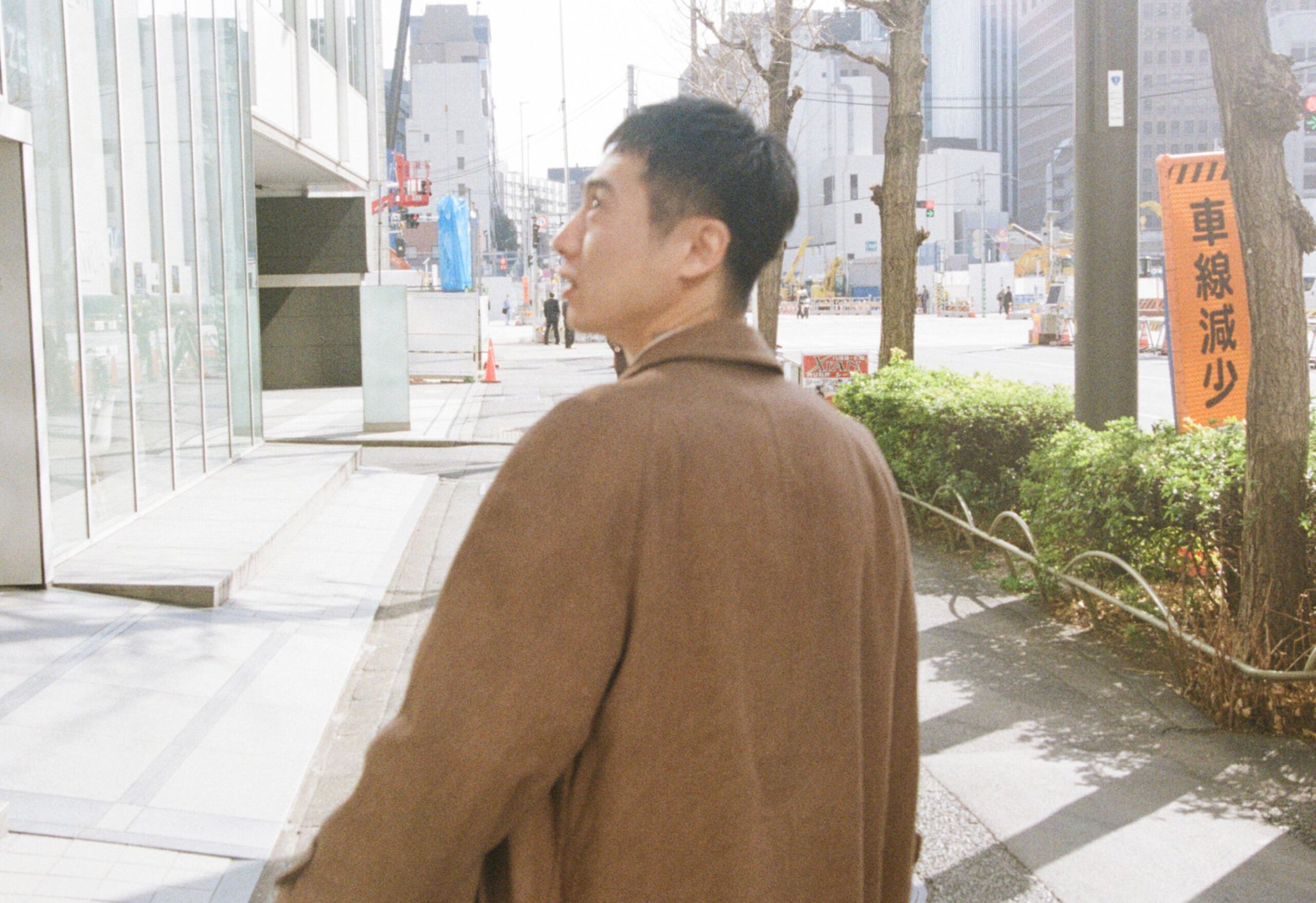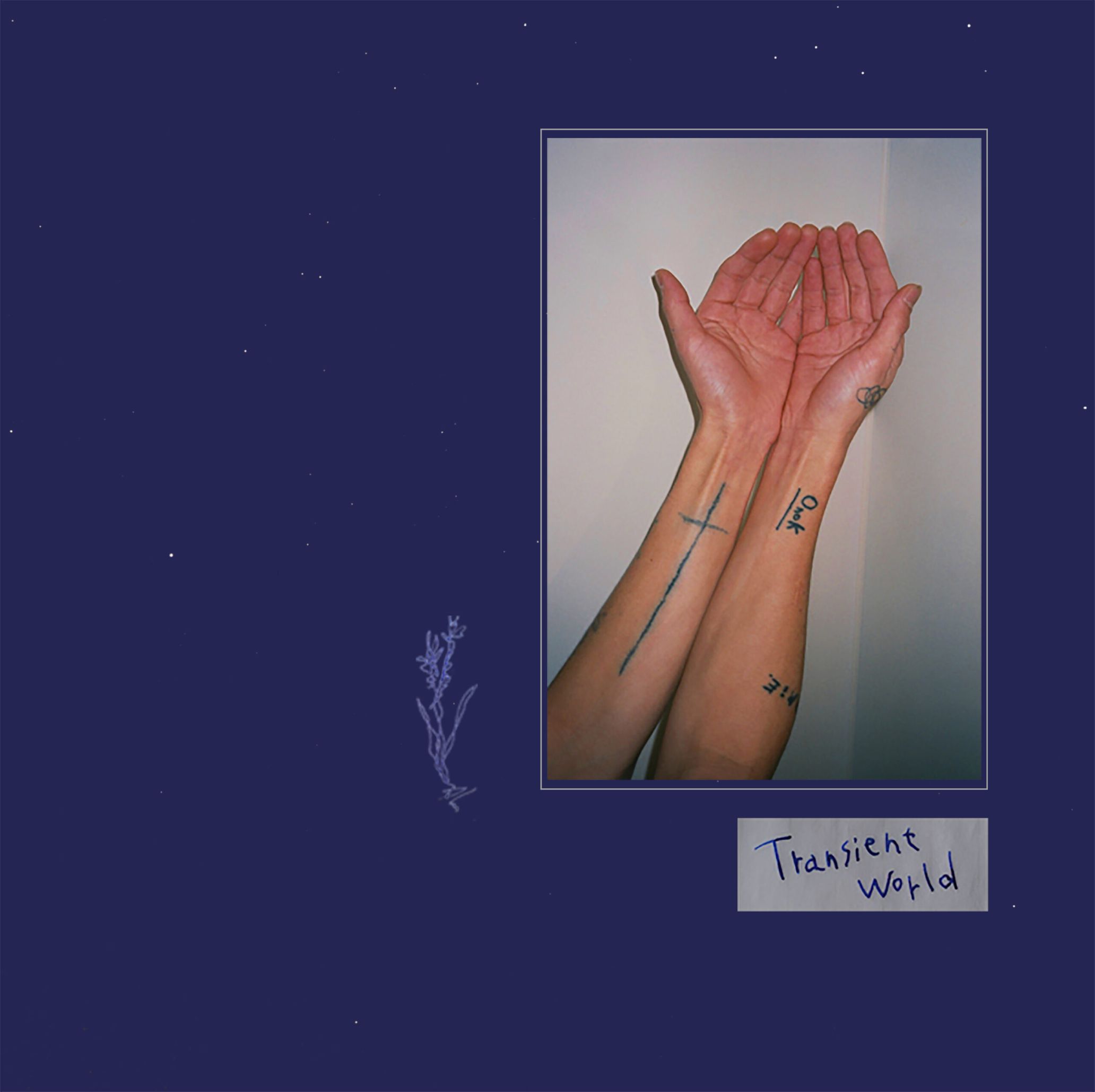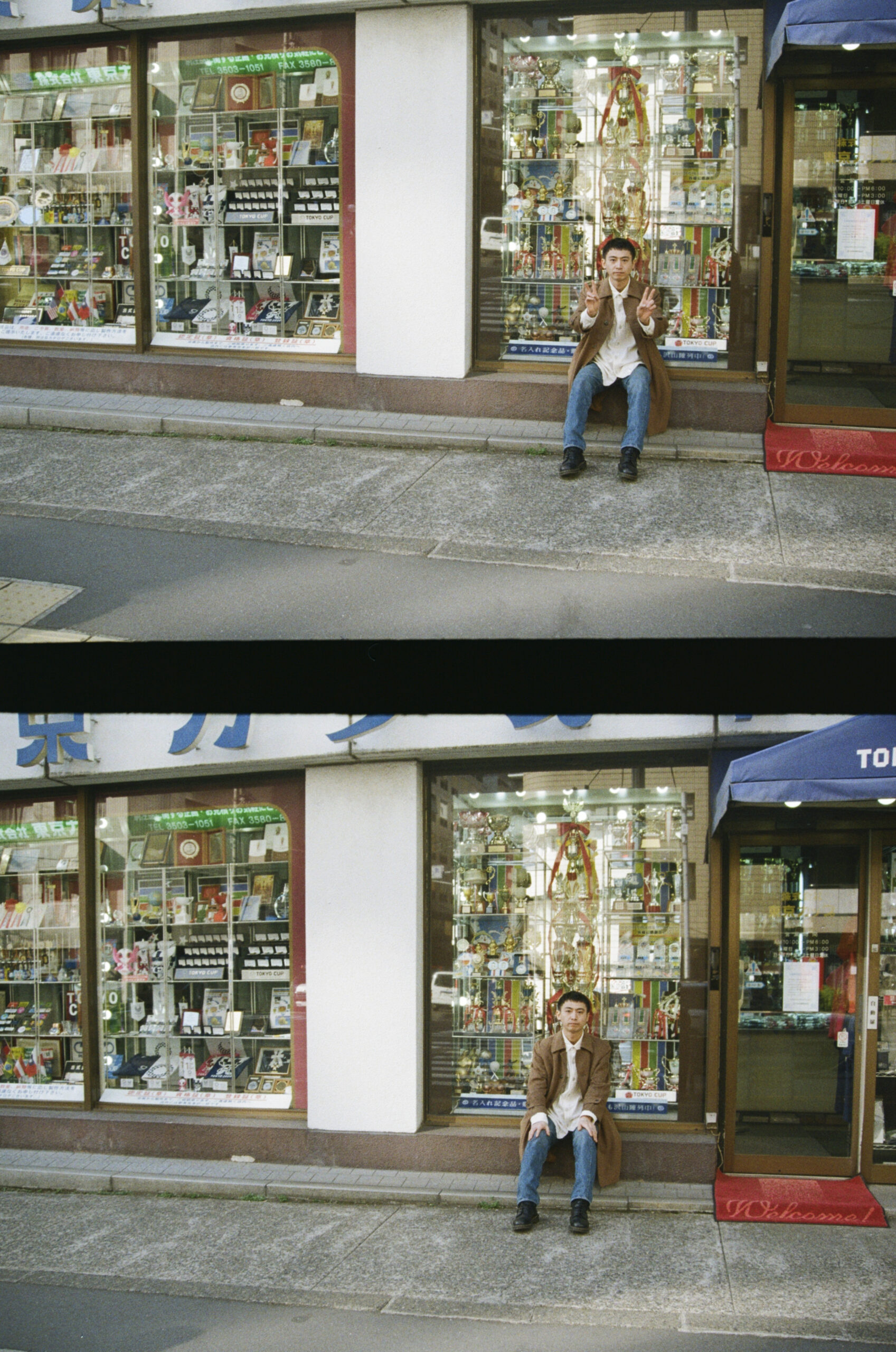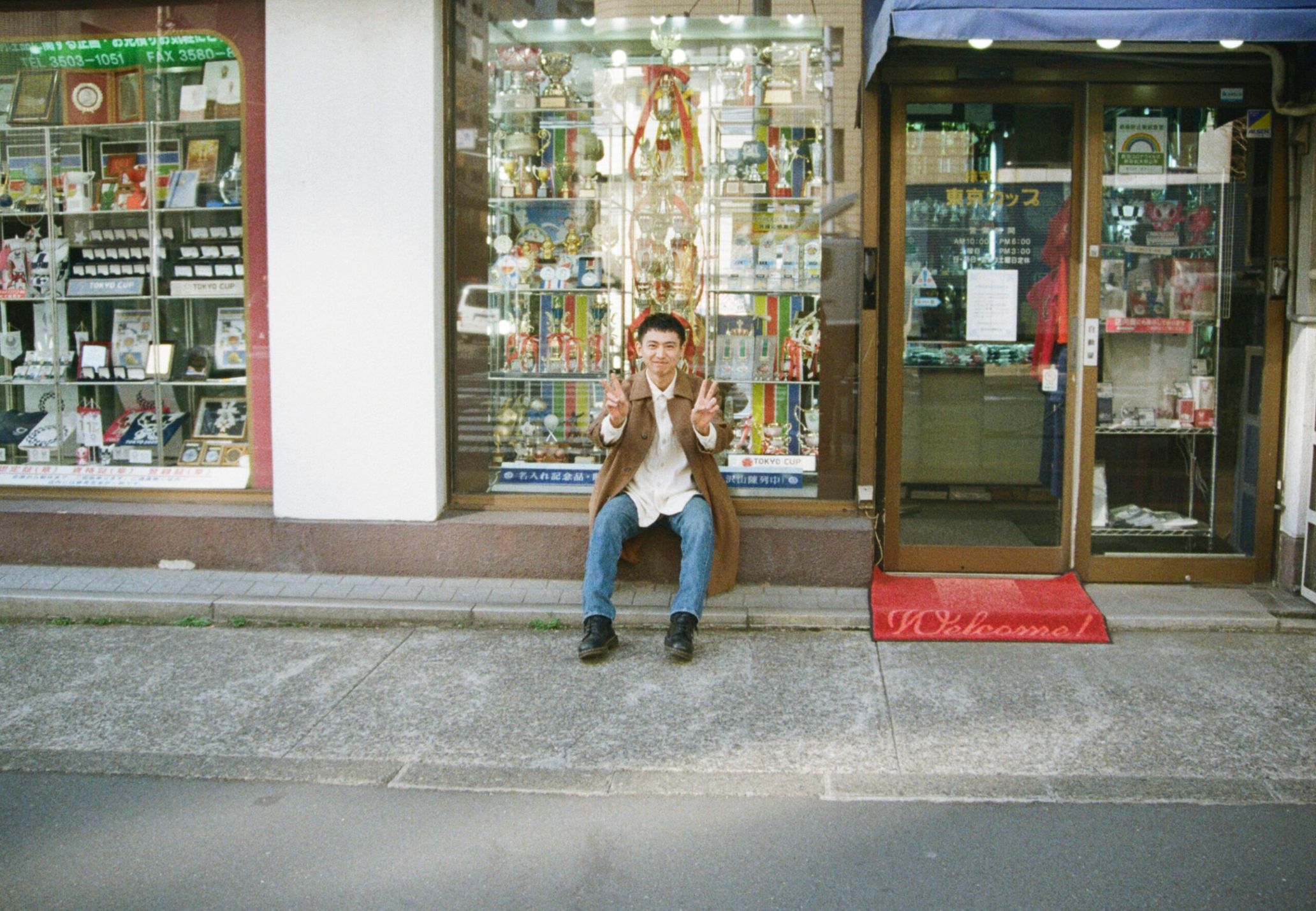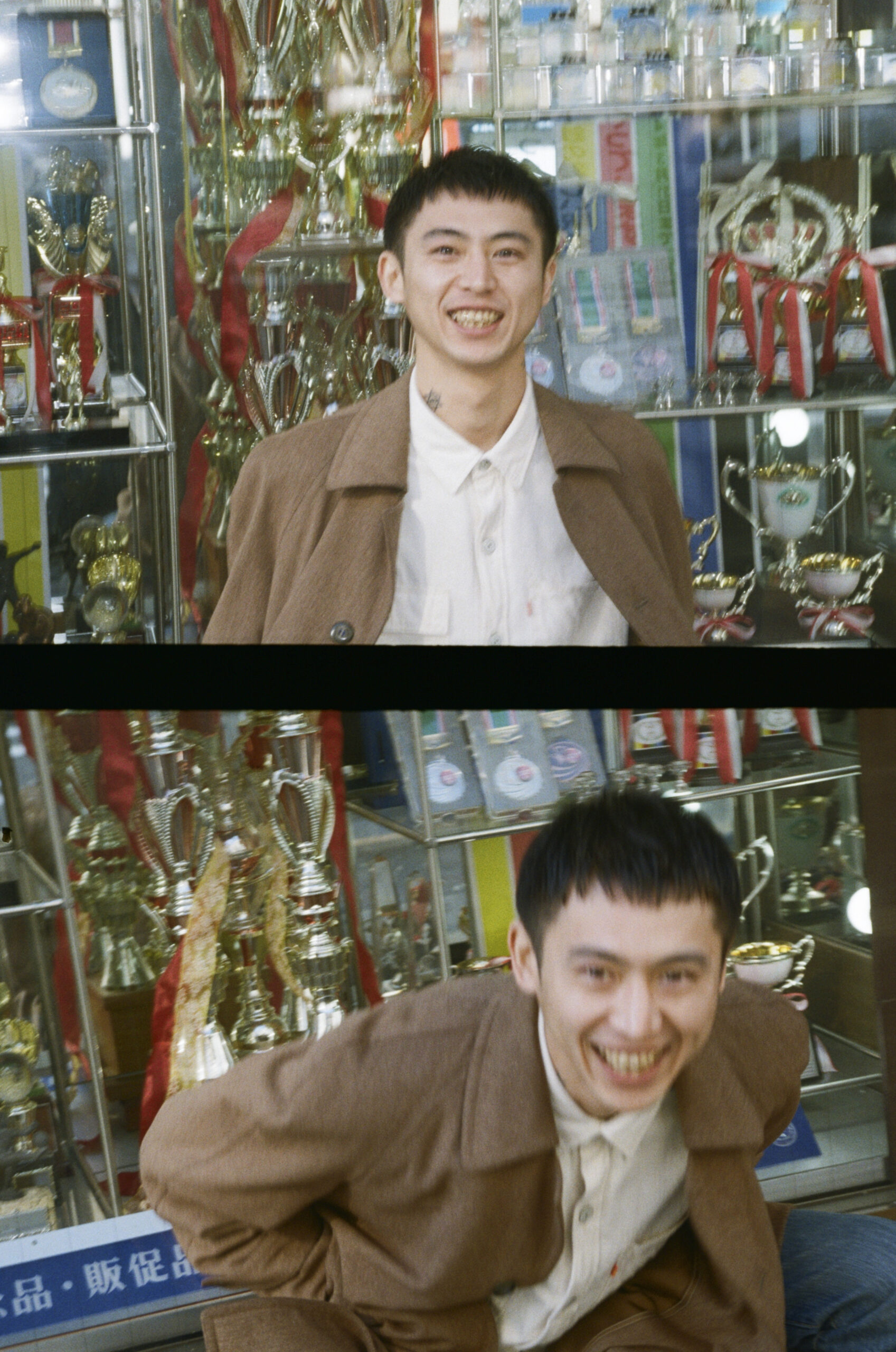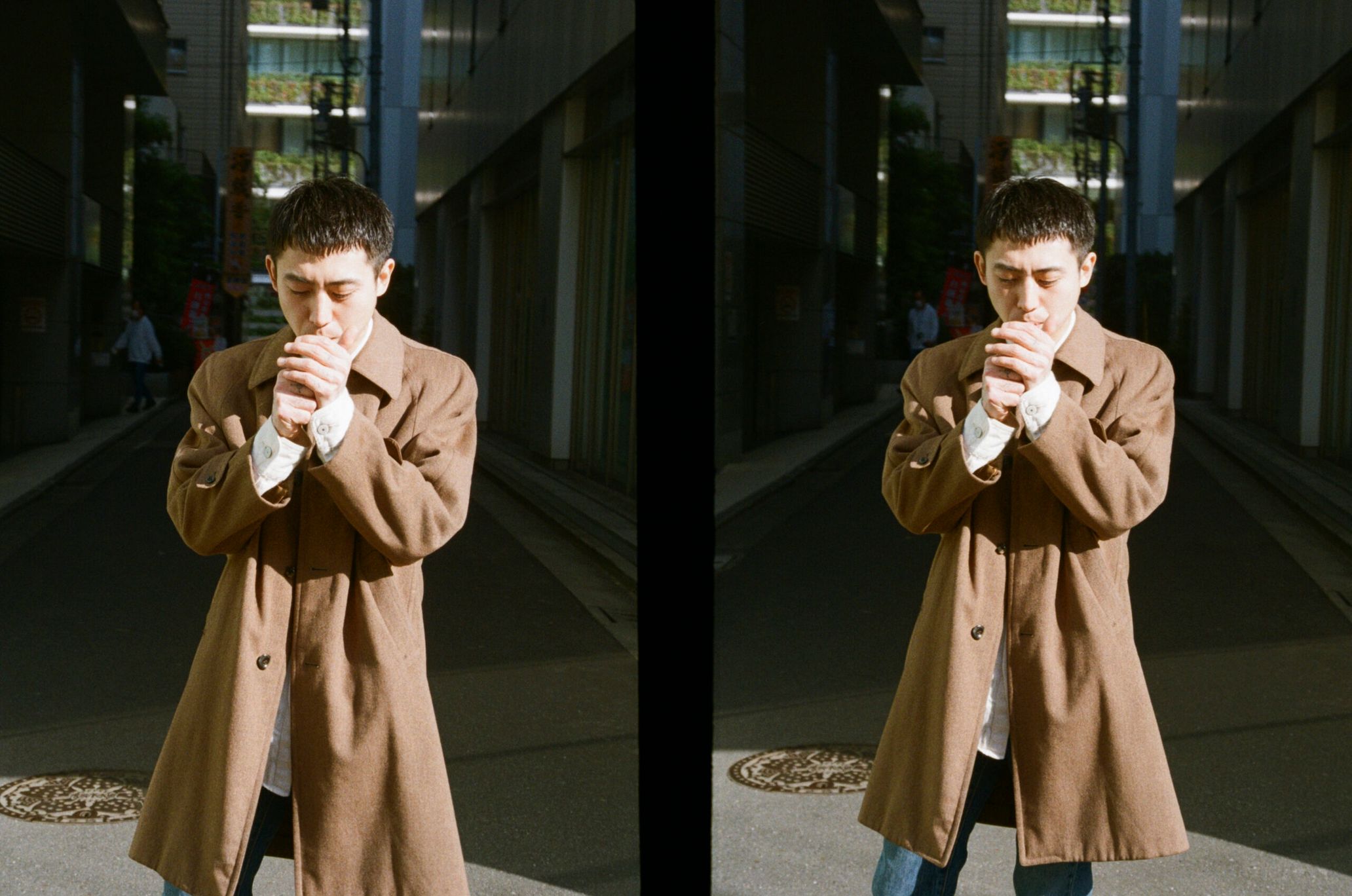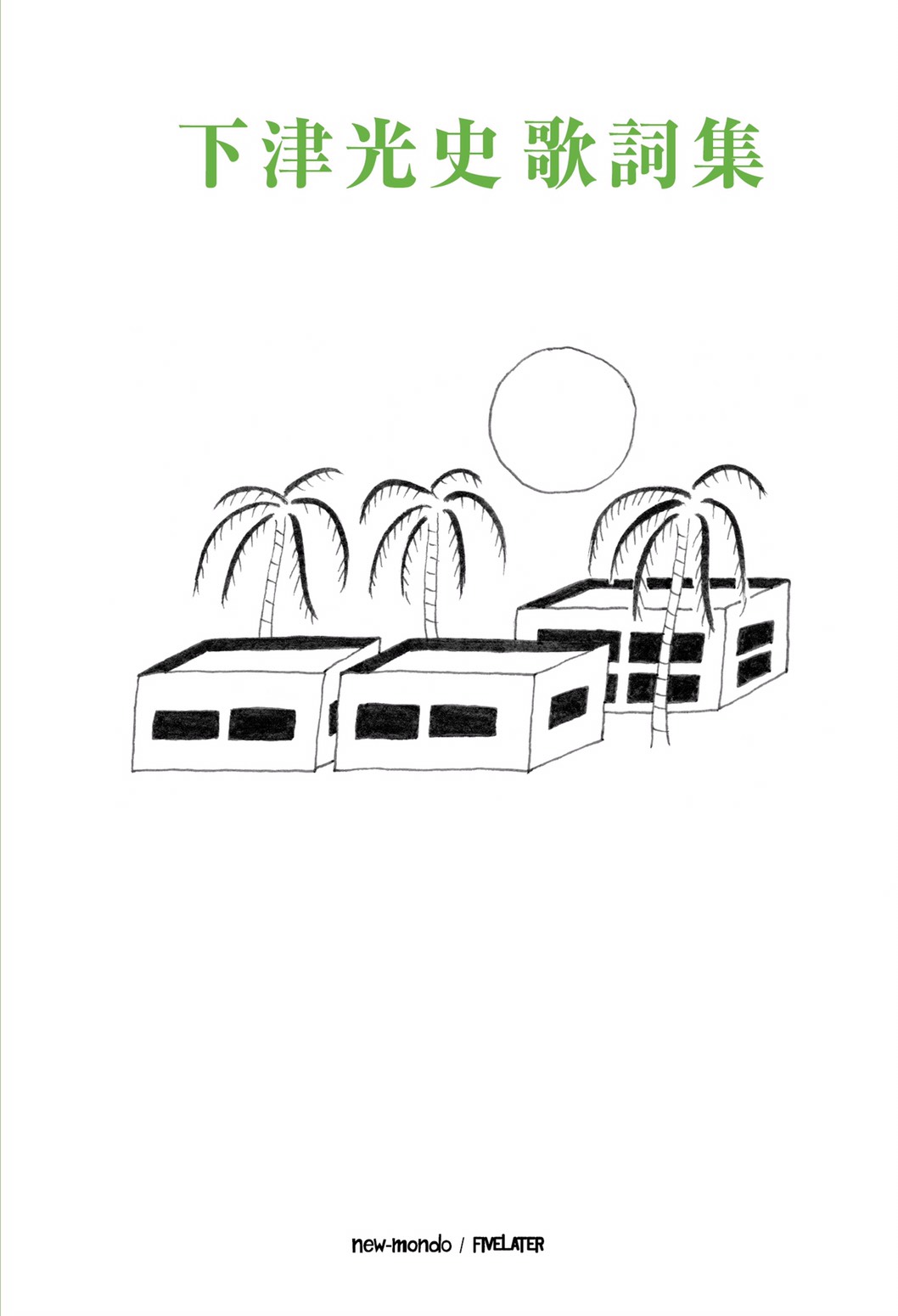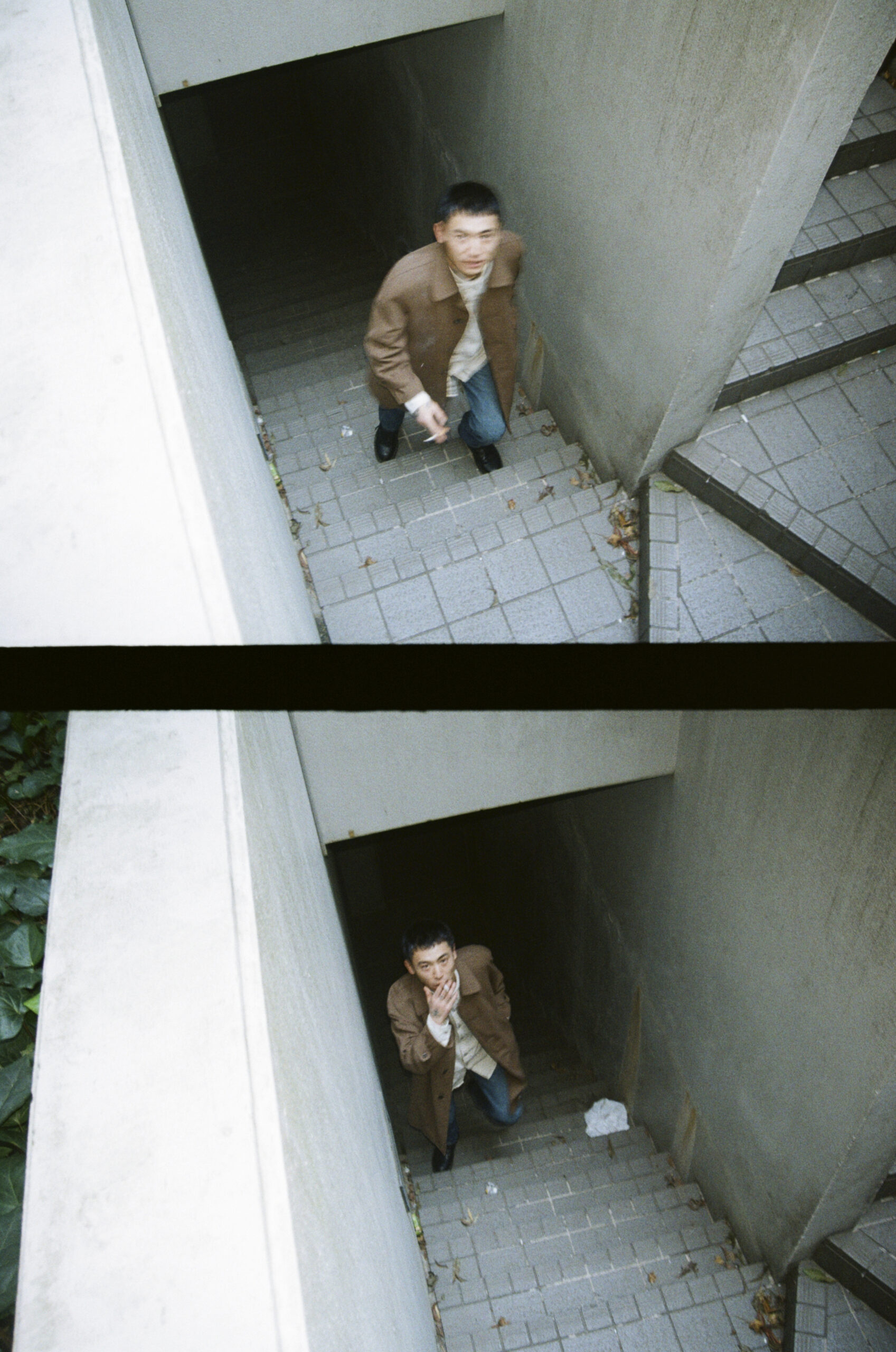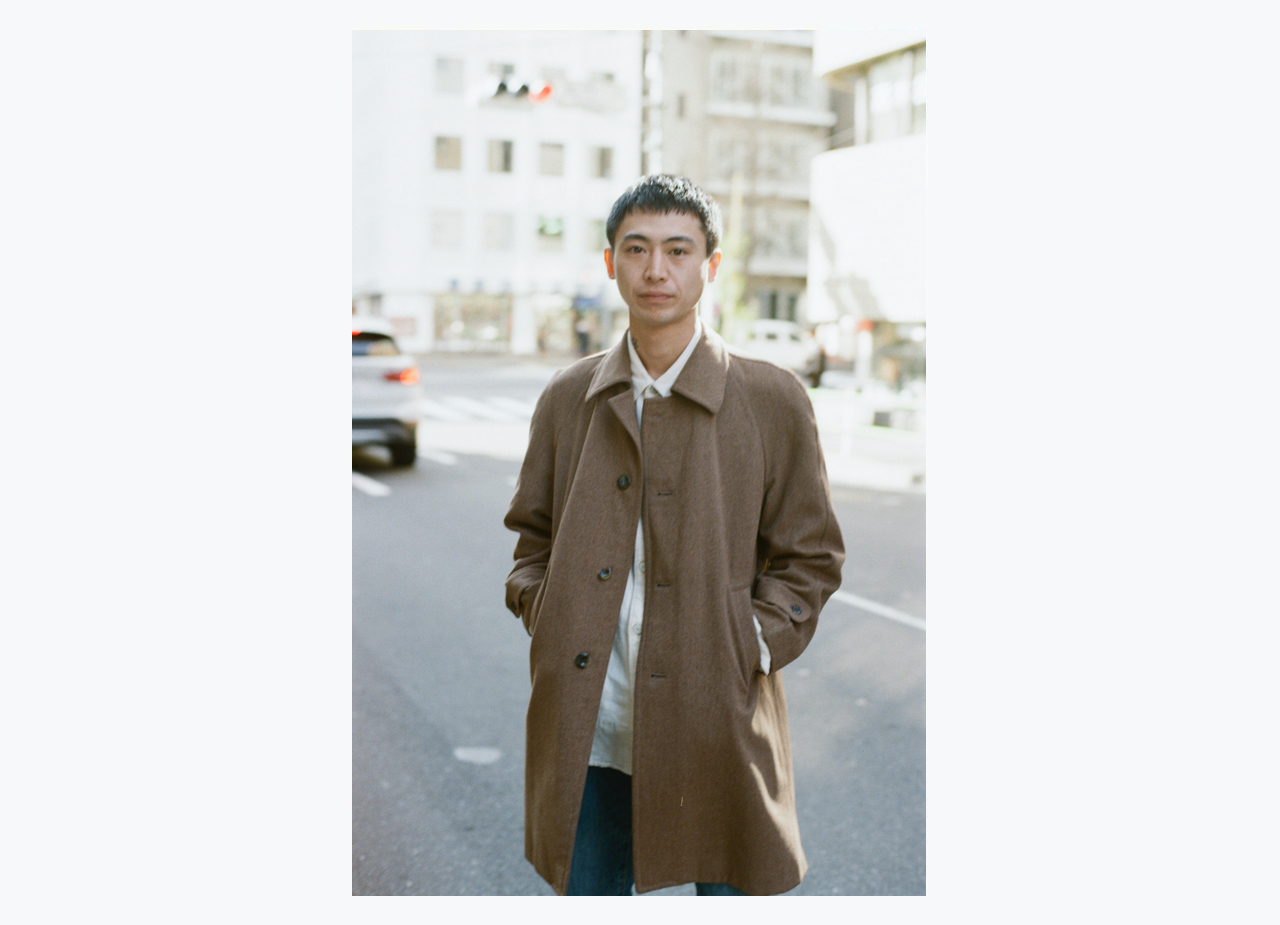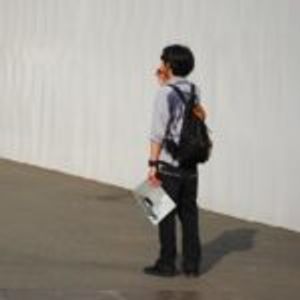Koji Shimotsu is the front man of the rock band, Odotte Bakari no Kuni. The singer, who lives in the now, released his second solo album titled Transient World. He also published a lyric book compiled of his lyrics from the past to the present. Shimotsu channeled his experience in the pandemic in both works. What did he go through over the year via his solo and band career?
An album reflecting the artist’s musical prowess
(FIVELATER)
――I’d like to talk to you about your latest solo album, Transient World, and what you felt during times like this.
Koji Shimotsu (Hereinafter Shimotsu): Looking forward to it.
――First off, you played all the instruments on the album.
Shimotsu: Yes… but I can’t play everything by myself. My hometown friend, ucary valentine, played the keyboard and took charge of the chorus and noise distortion for the seventh song, “Aishi no Computer.” Jiro Yanase of betcover!! plays the flute on the second song, “Michel,” and the fifth song, “Mangetsu.”
――You asked your friends to help you with some of the instruments, but you did the rest on your own?
Shimotsu: Yeah. I would get to the studio at noon and would leave at 10 PM. Taniyama-kun (Ryushi Taniyama, the bass player of Odotte Bakari no Kuni) was the engineer, and I’m so grateful he worked with me without complaining. We recorded it in four days — crunch time — and it was so tough; I thought I was going to bleed from my ears (laughs).
――When you say four days, it sounds like you made the album in such a short time. Did you have a reason for that?
Shimotsu: When I do something for too long, I get confused about what I’m doing. I want to complete something before the mud dries. This applies not only to Transient World; this is me all the time. Otherwise, I’m scared I might create something incoherent.
――Your previous solo album, Koji Shimotsu Songbook, is an album where you sing with a guitar, but your newest one has a rock band sound. Why did you play instruments, such as the drums, by yourself on Transient World?
Shimotsu: Most artists I love do everything by themselves. I tried to emulate that. I listened to a metronome, recorded the guitar part first, and then added the drums and bass afterward. I never want to do it again. It’s so lonely (laughs).
――Right (laughs).
Shimotsu: I was working on making music with Odotte Bakari no Kuni at the same period, and compared to my solo music, the time I spend with the band was extremely enriching. It’s like that contrast corrupted my senses. My brain would be all over the place for the first hour in the studio with the band. I could finally read my bandmates’ faces after a while.
“But when I write songs, the only thing I’m doing is creating one from zero”
――People in bands who also have a solo career often tell me they switch from one mindset to another. In your case, do you get to a session and adapt according to the situation?
Shimotsu: Yes. If the people there are my bandmates from Odotte Bakari no Kuni, we have our distinct groove, so I naturally respond to that. If they say, “This song’s good,” then we would play that song over and over. With GOD, [my other band], I pick solid songs with a different taste. But when I write songs, the only thing I’m doing is creating one from zero. The question is how to go from one to 100. More than switching, it’s about figuring out at what point a song is complete.
――Do you want each bandmate to work on building a song from one to 100?
Shimotsu: Yes. I’m only really interested in creating from zero to one, so I want to incorporate other people’s views regarding other aspects. That’s one reason why playing in a band is fun.
――Going back to Transient World, are some parts of the album informed by your experience of the pandemic in 2020?
Shimotsu: When we couldn’t go outside during the first state of emergency, I was super bored. I found a cassette tape that Taniyama-kun gave to me, and I got obsessed with analog mediums. The concept behind it is so cool. I bought around 300 vinyl records (laughs); I got music I used to listen to in my childhood, re-listened to them, and did that repeatedly. I also bought new jazz records and whatnot. I experienced how sound changes according to what gadget you use. I felt the infinitude of music in my room. Perhaps I made Transient World by learning from the past. Yes, I usually do [learn from the past to make music], but I think it’s clearer on this album.
――Out of the records you listened to, what sort of music is reflected in the album?
Shimotsu: Jazz and this band called Vetiver, which I used to listen to a lot in the past. I used tension chords and had a blast on some songs, while I used open chords on others. I picked up the things I had avoided because I would think, “I’m not going to do it because it looks hard,” and tried doing them. Transient World might not be rock n roll, as it’s closer to traditional folk. That’s where my roots are.
――The songs are sonically lively and bright. On the other hand, the lyrics express something different from how the songs sound. I felt like you used many specific words, which made me as a listener ponder a lot.
Shimotsu: Here’s an example. Even if there’s a melody where a five-letter word would fit, “Konnichiwa” wouldn’t feel right, but “Konbanwa” could. Things like this happen. I’ve always looked for words that have meaning and fit the song. In terms of the lyrics, I enjoy playing with words and singing about acerbic things.
――What kind of situation do you find yourself in whenever you come up with lyrics?
Shimotsu: I write them down when they pop in my head. As long as we’re alive, we sometimes get irritated for no reason. I write a song when my frustration builds up to the point of explosion. It’s a repetition of writing lyrics and going like, “This is what I wanted to say. Man, it was rough.” When I write, I feel better, and when my anger builds up, I become more irritable, so I write again to feel good. It’s a cycle of that. I’m terrible for being this way. Sorry, world.
It’s wack for humanity to come together because of the word coronavirus
――The world has entered a vastly different era because of the pandemic. What are your views on the present?
Shimotsu: There’s this tendency for people to assume they don’t have to be involved because everyone else is apathetic towards everything. It may seem like they’re living independently and are fending for themselves, but that’s implausible. I’m pissed off at how the world is. At the same time, I’m pissed at myself because I live my life following such a world. This attitude of being like, “Let’s be one and work together, so the situation doesn’t get any worse” is bullshit, too (laughs). I think we as humans can’t come together because of this one thing. If the buzzword is “coronavirus,” then it’s wack. There’s got to be something better.
――I’m presuming you sang about your opinions on the pandemic on the ninth song, “bird song.”
Shimotsu: I verbally vomited all my opinions on coronavirus on “bird song.” Like, “I wonder who’s profiting off this? Hell, I’m going to sing.”
――On the eighth song, “Rainy sunday blues,” the lyrics are sharp: “A police officer knocks down a kid.” Did these words derive from how you feel towards the state of the world today?
Shimotsu: The situation I wrote about in that song isn’t something that started today, so it’s not about the pandemic per se. I wrote the things I’ve thought about in my life and the things that made me angry. The song’s about how I should live my life. I wanted this song to be in the style of talking blues.
――So, the feelings you bottled up because you couldn’t go outside because of Covid-19 are reflected in this album.
Shimotsu: Yeah, but I actually went to many places during this situation. Despite the pandemic, we (Odotte Bakari no Kuni) went to Okinawa twice, and I went to the ocean a lot during 2020. I wrote the fifth song, “Mangetsu,” at the house Donto (vocals and guitar) of Bo Gumbos (a rock band that disbanded in 1995) used to live in. The ocean right in front of the house is a well-preserved one. I thought, “I’m going back to Tokyo the day after tomorrow. I can’t believe this place and Tokyo are in the same country. Tokyo’s changed me.”
――I see. I’d like to hear about your lyric book, Koji Shimotsu Songbook, published on the same day as your solo album. I heard it’s a book with all the lyrics you’ve written?
(FIVELATER)
Shimotsu: 132 songs. I prioritized the album version for the songs that were released as singles as well.
――Why did you publish it at this timing?
Shimotsu: I was planning to stay silent about this discussion. Before I started talking about making this lyric book last year, my bandmates from Odotte Bakari no Kuni and I had a super deep conversation. We even spoke about if we should continue or stop playing as a band. It made me realize there was a possibility I could no longer be the band’s singer the next day. I thought, “If I don’t organize the songs I’ve continued to put out for a decade since 2009, then it’s going to be all messed up later on.” So, I decided to create an archive. That allowed me to put my emotions together and create something physical. Just when I was thinking about this, I got asked to make a lyric book, so I was like, “Let’s do it!”
――Ten years of your life are packed into that book.
Shimotsu: Looking back, the memories of what I did over these past ten years are fragmented. But when I re-read my lyrics, the things I had on my mind then comes back to me. Perhaps it’s an archive of my memories.
“Being in a band makes me feel like I’m alive”
――If you hadn’t had that conversation with your band, you might’ve never imagined creating a lyric book.
Shimotsu: Right. I doubt we would’ve had that discussion if the band was going well, and I don’t think I would’ve made a lyric book if times were different. 2020 was the year I had the painful realization that I have to continue putting something out to survive.
――I could tell how big of an impact the pandemic had on you and your band.
Shimotsu: It was big. Each band member has their own family, and if someone you love is gone, then you’d have no reason to sing at all. It was scary, in a way. Whenever there was a vibe that the band might end — even if it was slight — I was devastated. I go to the sauna more often now to repair my body (laughs).
――What do you want to do after the pandemic?
Shimotsu: Play a super loud live show at Shibuya crossing.
――(Laughs).
Shimotsu: I’m going to ignore the police even if they come. That’s what I want to do. On second thought, this is off-limits. I take it back (laughs). I wonder… I want to go on a national tour with my bandmates and our instruments. If we get tired, we could go home. I want to do the things I used to do.
――Lastly, you spoke about your latest album and your solo career and band career today; could you touch on why you make music alone and with others?
Shimotsu: Regarding my solo music, I have a policy where I make music I’m comfortable and familiar with, such as folk, blues, reggae, and other music I used to listen to growing up. My roots. Simply put, I’m just consoling myself with my solo career. You can be a ball of ego with that. On the contrary, my band is a vital tool for me to connect with society. For me, I only interact with the world through my band. Being in a band makes me feel like I’m alive.
Koji Shimotsu
Koji Shimotsu was born in 1989 in Hyogo prefecture. He’s the vocalist and guitarist of the rock band Odotte Bakari no Kuni. He’s also in GOD, made up of people like jan from jan and naomi and Kaya Hamano of Gateballers. He released his first solo album, Koji Shimotsu Songbook in 2018, and began his solo career.
https://odottebakarinokuni.com/
Instagram:@shimotsukoji
Photography Rintaro Ishige
Text Ryo Tajima
Translation Lena Grace Suda

